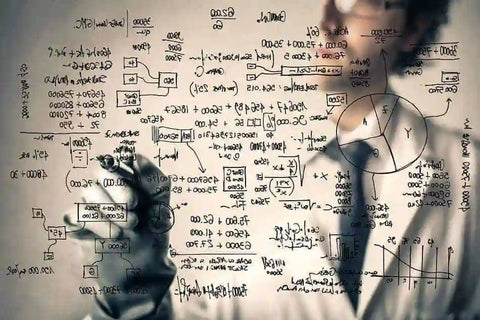The Art of Listening for Thesis and Dissertation Candidates
Most postgraduate students who are conducting advanced research and engaged in writing a thesis or dissertation would argue that they are very good listeners indeed. Sound listening skills are required, after all, to benefit from lectures and class discussions, excel in undergraduate courses and land a position in a postgraduate degree programme. However, drafting, revising and polishing a long research document for examination by a committee of specialists tend to place new demands on a student’s skills, including his or her listening skills.
In the course work required for most undergraduate degrees, assignments are usually submitted, graded and tucked away as credit earned. Revisions might be part of the point in a few cases – when an essay outline is handed in for commentary before the essay itself is written, for instance, or a student decides to expand or reuse a paper in a longer project – but this is rare. The feedback offered by the instructor will no doubt be considered by the student, at least to some extent, and certain aspects of it will likely be taken to heart for the next assignment, but if the grade is acceptable, the student and instructor will probably never discuss the paper and the comments it generated, so the kind of listening such discussions require will not be a prominent part of the experience gained by most undergraduate students.
The situation is very different when a postgraduate student is working on a thesis or dissertation. Structural plans, timetables, working tables of contents, experimental trials, chapter drafts and many other aspects of a thesis or dissertation might and probably will be open to commentary. Feedback will certainly come from a candidate’s supervisor or primary mentor, and in most cases other members of his or her supervisory committee will offer criticism and recommendations as well. As the product of different perspectives, this information will be various, but all of it will need to be considered carefully and accommodated in some way, whether that means significant changes in the thesis or dissertation or simply clear explanations of why certain approaches are or are not used.
Although it is unlikely that this initial criticism will be presented orally, it may be, in which case listening as carefully as possible to exactly what the specialist is saying is essential. Most students will, however, discuss with their primary supervisory the critical feedback received from other committee members. This can be an extremely valuable exercise for determining and receiving approval for the adjustments that will accommodate the various concerns and recommendations that have arisen. It is vital for the student to express his or her views, but it is equally important to listen attentively to how the supervisor, who has far more experience, responds to the feedback and understands its implications for the research and the thesis or dissertation.
Why Our Editing and Proofreading Services?
At Proof-Reading-Service.com we offer the highest quality journal article editing, dissertation proofreading and online proofreading services via our large and extremely dedicated team of academic and scientific professionals. All of our proofreaders are native speakers of English who have earned their own postgraduate degrees, and their areas of specialisation cover such a wide range of disciplines that we are able to help our international clientele with research editing to improve and perfect all kinds of academic manuscripts for successful publication. Many of the carefully trained members of our manuscript editing and proofreading team work predominantly on articles intended for publication in scholarly journals, applying painstaking journal editing standards to ensure that the references and formatting used in each paper are in conformity with the journal’s instructions for authors and to correct any grammar, spelling, punctuation or simple typing errors. In this way, we enable our clients to report their research in the clear and accurate ways required to impress acquisitions proofreaders and achieve publication.
Our scientific proofreading services for the authors of a wide variety of scientific journal papers are especially popular, but we also offer manuscript proofreading services and have the experience and expertise to proofread and edit manuscripts in all scholarly disciplines, as well as beyond them. We have team members who specialise in medical proofreading services, and some of our experts dedicate their time exclusively to dissertation proofreading and manuscript proofreading, offering academics the opportunity to improve their use of formatting and language through the most exacting PhD thesis editing and journal article proofreading practices. Whether you are preparing a conference paper for presentation, polishing a progress report to share with colleagues, or facing the daunting task of editing and perfecting any kind of scholarly document for publication, a qualified member of our professional team can provide invaluable assistance and give you greater confidence in your written work.
If you are in the process of preparing an article for an academic or scientific journal, or planning one for the near future, you may well be interested in a new book, Guide to Journal Publication, which is available on our Tips and Advice on Publishing Research in Journals website.








